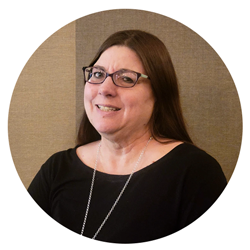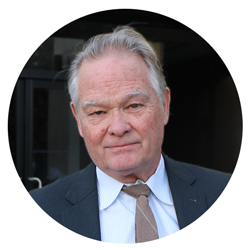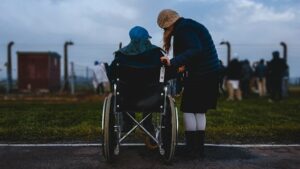The following article was initially published in the January Edition of Nevada Lawyer, an official publication of the State Bar of Nevada. To view the original publication CLICK HERE >
The following article was initially published in the January Edition of Nevada Lawyer, an official publication of the State Bar of Nevada. To view the original publication CLICK HERE >
Long-term care settings implicate a multitude of practice areas from elder law to torts, contracts, and beyond. Recent legislation will have a significant impact in this practice area for lawyers, judges, multi-disciplinary professionals, or those looking for general information to assist family and friends.
Long-Term Care Lingo
First, a variety of terms are used interchangeably to refer to long- term care. In Nevada, there are essentially two levels to be familiar with – settings that fall under federal law and settings that are under state law. The highest level of care is a skilled nursing facility (SNF), sometimes referred to as a nursing facility or nursing home. These settings fall under the Federal Nursing Home Reform Amendments (FNHRA), which was passed by Congress in 1987.1 The law applies to all skilled nursing facilities that accept payment from Medicare or Medicaid (or both) regardless of how the resident pays. Under FNHRA, nursing homes must meet minimum standards of care. The act also defines the legal rights of nursing home residents, including a specific process for discharges culminating in an administrative hearing. It also requires that every state must have an inspection and licensing agency that monitors compliance with the federal law. In Nevada, we have the Bureau of Health Care Quality Compliance (BHCQC). Lower levels of care are licensed by the state as residential facilities for groups (RFGs) and sometimes referred to as group homes, or assisted living. They may have different endorsements, such as an Alzheimer’s endorsement, to provide specialty care.
What is the Long-Term Care Ombudsman?
Federal law also mandates each state to safeguard the rights of residents in long-term care settings and improve quality of care through a long-term care ombudsman program (LTCOP).2 The LTCOP conducts investigations and routine visits and provides education and advocacy for the thousands of Nevadans residing in long-term care. Under federal law, investigations of the LTCOP are confidential, and disclosure is prohibited absent written consent from the resident/ complainant or court order.3 The court order must clearly specify release of records by the LTCOP.
Personal Needs Allowance Increase
Medicaid recipients living in a skilled nursing facility are permitted to keep $35 from their personal income that can be used for clothing, personal items, and incidentals. This paltry sum is referred to as the personal needs allowance (PNA) and it has remained stagnant in Nevada for more than 30 years. However, effective January 1, 2024, under Senate Bill 45, the personal needs allowance for all long-term care residents will finally increase. Now, the rate amount will match the annual rate set for Medicaid recipients under home and community-based waivers (HCBW), which was approximately $149 for 2023.
Cameras and Electronic Communications Devices
Residents in skilled nursing facilities may choose to use that additional personal needs funding to install an electronic communication device in their room, as outlined under Assembly Bill 202, which went into effect October 1, 2023. The legislation is modeled after Esther’s Law from Ohio, named after Esther Piskor, who was abused and neglected in a nursing home. Her son, Steve Piskor, installed a hidden camera in her room, which revealed the unlawful activities happening in the facility.4 Nevada’s law is person-centered and recognizes that the authority to have the device belongs to the resident.
Importantly, for guardians and representatives of residents, the power to install an electronic communication device is not implicit. In consideration of the intrusion on one’s private daily life, Nevada’s law requires extrajudicial authority, which must be either specifically authorized in the existing guardianship, petitioned and granted through a new filing, or specifically delegated by the principal in a health care power of attorney.5 With the proper authorizations in place, the statutorily prescribed form must be provided to the facility – where the facility has not adopted a form, practitioners must draft one that complies with the requirements of the statute. If the resident has a current roommate, written consent must be obtained. If the roommate does not consent to the electronic monitoring device, the facility must make “reasonable attempts” to accommodate the resident’s request. The law creates a new cause of action if a facility discriminates or otherwise retaliates against a resident regarding exercise of their right to have an electronic communication device. Additionally, civil penalties culminating in criminal liability may apply to unauthorized persons who intentionally tamper, obstruct, or destroy the device, or any of its recordings. Exceptions exist for attorneys to disable the device to maintain attorney-client privilege during meetings with their client when acting within the scope of that representation. It is the duty of that authorized person to turn the device back on after such a meeting.
Involuntary Discharges
Finally, legislation this session overhauls the due process rights of residents living in RFGs to mirror the federal protections under FNHRA. The lack of baseline protections in these locations has led to inappropriate discharges to homeless shelters, denial of rights of residents to return home after hospitalization, and lack of choice for care setting. Senate Bill 298 standardizes contract language for facilities, establishes an involuntary discharge process, and includes disciplinary measures for non-compliance.
Modeled after the federal law, involuntary discharge is only permissible under five instances: (1) the health of the resident has improved such that they no longer need services provided by the RFG; (2) the health and safety of persons in the RFG is endangered; (3) the resident has failed, after notice, to pay; (4) the services at the RFG are no longer adequate to meet the level of care for the resident; or (5) the facility ceases to operate. The law makes exceptions for emergency situations. Additionally, the facility’s written notice must be provided in a language that the resident or representative is capable of reading; if it is not provided, then the facility must provide a translator “who has been trained to assist in the appeal process” with costs borne by the facility.
SB 298 is necessary due to implementation of the Settings Rule, which is a federal regulation applying to Home and Community Based Waiver (HCBS) recipients. It is intended to ensure that people with disabilities living in the community have access to the same kind of choice and control over their own lives as those not receiving Medicaid HCBS funding. The Settings Rule outlines minimum standards for integration, access to community life, choice, autonomy, and other important consumer protections. For example, the Settings Rule requires that residents have choice of roommates, freedom to furnish or decorate the unit, the right to control their own schedule, and the right to visitors at any time.6
For provider-owned or controlled residential settings, additional protections must be in place. The rule states that:
“(A) The unit or dwelling is a specific physical place that can be owned, rented or occupied under a legally enforceable agreement by the individual receiving services, and the individual has, at a minimum, the same responsibilities and protections from eviction that tenants have under the landlord tenant law of the State, county, city or other designated entity. For settings in which landlord tenant laws do not apply, the State must ensure that a lease, residency agreement or other form of written agreement will be in for each participant and that the document provides protections that address eviction processes and appeals comparable to those provided under the jurisdiction’s landlord tenant law.”7
In Nevada, our landlord tenant statute does not apply RFGs.8 While SB 298 fulfills part of the obligations under the Settings Rule and marks a significant step forward, the appeal process and forum for adjudication were cut out of the bill prior to passage. Thus, leaving a glaring hole in the new law with significant questions remaining as to how the appeal process will unfold.9
To learn more about Long-Term Care Ombudsman Program go to https://adsd.nv.gov/Programs/Seniors/LTCOmbudsman/LTCOmbudsProg/
To report concerns in long-term care facilities, please contact the LTCOP Helpline at 888-282-1155 or complete the complaint form: https://adsd.nv.gov/ Programs/Seniors/LTCOmbudsman/Inquiry/Complaint_Form/.
ENDNOTES:
- 42 S.C. §§ 1395i-3, 1396r
- 42 S.C. §3058g and 45 CFR Part 1324
- 42 S.C. § 3058g(d)
- Esther’s Law | Department of Aging (ohio.gov)
- Assembly Bill 202, 82nd Legislative Session (2023)
- 42 CFR §441.530.
- Id. (emphasis added)
- NRS 118A.180.
- See e.g., Carlson, Eric “Implementing the HCBS Settings Rule: Protecting Consumers from Harmful Evictions” Justice in Aging (March 2023)

The directing attorney for Northern Nevada Legal Aid’s Senior Law Center, Medical Legal Partnership, and Housing & Consumer Unit. She previously served as the Chief Rights Attorney and Legal Assistance Developer for Nevada. She resides in Reno with her husband, rescue dog, and two young children.
JENNIFER M. RICHARDS

The State Long-Term Care Ombudsman for the Nevada Department of Health and Human Services’ Aging and Disability Services Division.
MARIE COE









